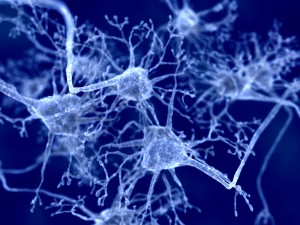

Are your neurons firing correctly? Have you fallen for widely believed ‘neuromyths’?
Once you are given your score, please leave a comment (and your score, if you are brave enough!) in the box at the bottom of this page.
Good luck!
My blog next week will discuss this topic, with a more detailed look at recent research on the widely believed myths about the brain.
[mtouchquiz 1]
Acknowledgements
The neuromyths quiz was developed for a research study conducted by Sanne Dekker et al and published in Frontiers in Psychology in October 2012:
Sanne Dekker, Nikki C. Lee, Paul Howard-Jones, Jelle Jolles. Neuromyths in Education: Prevalence and Predictors of Misconceptions among Teachers. Front Psychol. 2012; 3: 429. Prepublished online 2012 August 31. Published online 2012 October 18. doi: 10.3389/fpsyg.2012.00429

Great quiz! Lot’s of fun, but really hard.
I scored 27 out of 32, which was a lot more than I was expecting to get. I slipped up on questions: 13, 15, 18, 24 ad 29.
Thanks for a nice bit of brain gym! ;-)
I do not agree with all the answers. For example neurogenesis can occur in old age in certain parts of the brain.
Fascinating – pleased my new course on dyslexia helped with some answers but yes a few myths debunked too in my 22/32 score!
20/32 — shucks, my Psychology A level counts for nothing!
Hmm, 22/32 – worse than I hoped for – some myths clearly held so must learn to read around more. However, not a medic and not a psychology grad – so maybe anything about half marks is OK….
Very interesting – although the wording of some of the questions would seem to suggest that a case could be made for answering yay or nay… Or am I just a bit gutted about my low score?
But how low is low?!? Mine was embarrassingly low!
22/32. I always knew André was cleverer than me.
26 out of 32. I’m just so left-brain!
17/32 well slightly over 50% I guess. Gutted and right brained! I am a softer for myths obvs.
I honestly thought I knew a lot more about the links between our brains and our capacity to learn! At least I can stop drinking litres of water every day and will stop scouring the Internet for recipes involving salmon, mackerel and trout! Very interesting quiz though, thanks.
26/32. I’m happy enough with that score. I’m disappointed that caffeine doesn’t help your focus. I seem to do nothing but suck on coffee during my frees. Now I’ve no excuse for drinking it – Bah! I’ll have to tell the pupils to leave the Red Bulls at the door on their way in.
22/32
Oh dear. I guessed several. The stuff about left right was a theme I just guessed about, which is different from having a belief one might act strongly on, which is wrong. I doubt it is what the ‘myth’ is about but there is some evidence for left vs right prefrontal cortical differences in being motivated by expected aversive outcomes or expected rewarded outcomes, which I would guess might indeed affect learning approaches.
Several questions are a bit too vague and ambivalent. I wouldn’t accept them for an MCQ. For instance with question 30, neurogenesis is probably required for some types of learning but not other types.
Re another question, is all learning just synaptic modification? It’s still debated.
A hippocampus-oriented neuroscientist.
Sorry, the last question about neurogenesis is question 32 not 30.
I did think I was reading some quality research but my score says otherwise. Oops. Cool quiz
Only 20/32! I have reading to do!
Thanks, i enjoy a little quiz
18/32! Must try harder!
23/32. Not bad considering I dip dip sky blued some answers..lol!
Just 20 – spending too much time reading about teeth
Enjoyed the quiz
26/32 mmm… could do better. Going to ask Fen to try it when he gets home from dance and see how a GCSE Biology student does (not that I’m competitive).
31/32 I think some questions are a touch ambiguous. I thought when some parts of the brian are damaged other parts can compensate which may be why I got 6 wrong.
oops typo brain!
Ainslie is right about the ambiguous nature of the questions. Two previous studies (Herculano-Houzel (2002) http://is.gd/CUOh46 and Howard-Jones et al (2009) http://is.gd/kG55RY) had established the ‘correctness’ of the items in their questionnaires by first measuring the level of agreement with the statements amongst neuroscientists. 70% agreement was the threshold for the assertions that were used in the questionnaires. In other words, even neuroscientists disagreed about whether the assertions were true or false.
It’s not clear how Dekker et al established the ‘correctness’ of their assertions, as some of them were drawn from a different source. In all three studies, respondents were given the options T/F/DK. In the survey above, ‘don’t know’, ‘it depends what you mean by…’ or ‘true in about 80% of cases’ and so on, are not permitted responses.
Take, for example, question 3, ‘Boys have bigger brains than girls’. It’s true that the a large group of boys of a specific age would tend to have bigger brains than a large group of girls of the same age, but since the distributions for the sexes overlap, any given boy might not have a bigger brain than any given girl. If you know that, you can’t really respond either ‘true’ or ‘false’ to the statement, because neither response accurately reflects the data we have about brain size.
Or take question 6, ‘When a brain region is damaged other parts of the brain can take up its function’. That would depend, surely, on which brain region was involved and what the damage was. It’s pretty clear from the outcomes for cerebral palsy and stroke patients that the statement is true in some cases but not in others.
I know this quiz is for fun, but I think there’s a risk that the concept of ‘neuromyths’ might be well on the way to becoming a myth itself.
I agree. Some of the questions which are considered ‘false’ can certainly be challenged. Take the question about learning styles. Whilst Fleming’s VARK model has received a whole number of challenges, research has never exactly proved it to be false, because much of that research is actually questionable itself. See this website for a selection of comments: http://thinkneuroscience.wordpress.com/2013/04/11/the-myth-of-learning-styles/
There are other questions which also say something is a neuromyth when others would disagree, such as brain repair in old age, etc. This test, then, of itself, has limited value because it is based on the opinions of some — but not all — psychologists, and others would disagree. I was always taught “hypothesis-antithesis-synthesis”. This kind of questionnaire really doesn’t follow that approach and for that reason, as Sue stated, it could be somewhat of a neuromyth itself.
Well said Sue. For a website that claims to keep you up to date with the latest evidence, this quiz was really poorly worded and would have been nice to have citiations to studies, systematic reviews and/or scientific consensus included.
How I wish the management at my college would do this. They happily swallow any sort of management speak and turn it into timewasting doctrine.
21- quite embarrassing! I guess I should eat more breakfast and drink less tea.
Well glad to see that my results have not changed over the many, many years since i left school 17 out pof 32 (average 50%) just goes to show that no matter how hard you try, the intelligence you gain as a child in school can haunt you for life! no help for me now then:(
That was fun – 28/32 – could have done better!
I’ve asked a group of teachers to complete this quiz preparatory to our taking a deeper look into how people learn and how we can make better and better decisions about learning in school situations. Thanks for an excellent and useful website! I hope our group will leave notes on what they think as well.
I scored 19/32 i believe in the brain neuromythus.
Regards
Hani
Only 21, but then again only occasionally engaged in training and not really an educationalist.
I only got 23… some interesting stuff in there!
Damn, on 3,15,18, 20 & 31 I hesitated and didn’t go with my gut feeling/immediate thought and questioned myself too much by over analysing. This leads me to wonder can low self esteem and self doubt affect intelligence testing?
22/32, average :-(, could do better, need to read more as I think as a mental health activist I should have better knowledge of brain myths.
Wow did this late without double checking my answers not bad 21/32…
27/32
Thanks, interesting an better than expected
28/32 food for thought!
I disagree with some of the answers e.g. stroke recovery must use other parts of the brain, feral children struggle to learn language after 7/8, and my students/clients much prefer their learning style!
23/32 .. I agree with all except that there are no critical periods for learning…
very intresting test, thanks for sharing !
20/32
I scored 23, but I do not agree with all the answers, for example number 11: There are critical periods in childhood after which certain things can no longer be learned. as if a child does not hear a language until its 3, it will never learn how to talk (a child raised by wolves example).
Some of the questions are not yes/no absolutes so making the choices makes one guess about what evidence the question might be referring to. Some of the so-called “myths” may have a grain of usefulness for particular children but should not be considered valid in general. Part of the problem is that researchers did not really replicate, but usually made slight changes that created new/different hypotheses than the one supposedly being tested. Unless a person knows in depth the issue in question it is easy to be confused or jump to invalid conclusions.
I scored 27/32 84.375% better than I thought I would have done.
Thank you for this conversation.
MYoung
Houston, Texas
22/32 made a few dumb mistakes, interesting quiz.
Will it be available any research about that how the capacity of human brain can access or judge through activities and how those activities help to improve the brain power.
27 out of 32. Very interesting quiz!
I have some questions in this regard:
– what is the average score of respondents?
– what are the roots of these neuromyths?
– is there any proper reference for teachers to know more about neuromyths?
Thanks
Very interesting to see my results (21/32) – I need to do a bit of research here. It’s amazing how we are so convinced about certain ‘facts’ – is there still a place for multiple intelligences and accommodation of different learning styles?
Nice!
Can’t take the quiz!